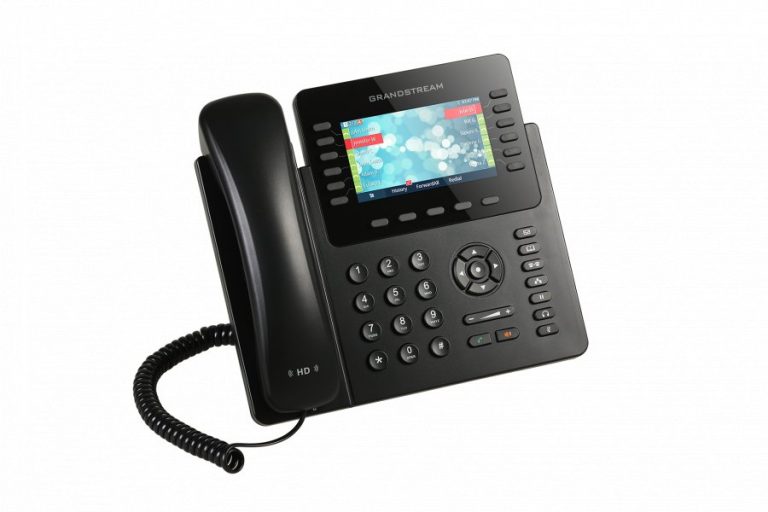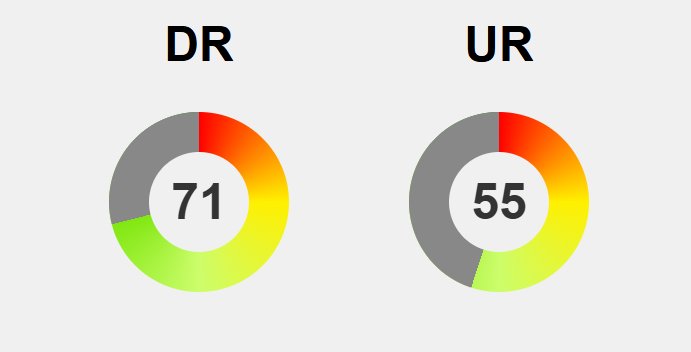Starting a home-based business offers a promising path to financial independence and personal fulfillment—yet many entrepreneurs struggle to turn their passion into profit. What does it truly take to succeed in a landscape awash with digital tools, social media, and online marketplaces? This compelling overview explores how turning a hobby or skill into a thriving venture can transform daily routines, offering unparalleled flexibility and control over work-life balance. From legal considerations and budgeting to leveraging technology and storytelling success stories, it reveals how strategic planning and discipline are essential. Can small beginnings evolve into sustainable, rewarding careers? The journey is filled with challenges, but with perseverance, innovative marketing, and a clear vision, entrepreneurs are redefining what it means to work from home. Dive into real-world examples and practical insights that demonstrate how passion, paired with smart execution, can create not just income but a life aligned with your values and dreams.
Discover How Starting a Home Business Can Transform Your Life and Finances
Starting a home-based business is more than just a trendy idea—it’s a real pathway to gaining greater control over your finances and daily routine. Many people are drawn to the possibility of turning a passion, skill, or hobby into a source of income without the need to leave home. Thanks to the internet and digital tools, launching a small business from your living room is easier than ever, whether it’s freelancing, crafting, consulting, or selling online.
What makes this approach so appealing today is its accessibility. You don’t need a large investment or a physical storefront to get started. You can begin small, using the resources you already have, and scale up as your confidence and customer base grow. This flexibility allows you to test ideas, learn along the way, and build something sustainable at your own pace.
Starting a home business isn’t just about making extra cash; it’s a strategic move toward long-term independence. When you work on something you’re passionate about, motivation comes naturally, even through challenges. Your authentic enthusiasm can resonate with customers and help you stand out in a crowded market. Over time, this can evolve into a career that’s both fulfilling and financially rewarding.
Creating a home business also means designing a lifestyle that aligns with your values and ambitions. You control your hours, environment, and workload, which often leads to a better work-life balance. Many find that working from home allows for more time with family, hobbies, or personal growth—elements that are often sacrificed in traditional jobs.
Of course, the journey has its hurdles, but the potential rewards make it worth pursuing. With strategic planning, dedication, and a clear vision, anyone can turn a simple idea into a thriving venture. Starting from home offers a unique chance to craft a career that reflects your passions, values, and lifestyle, creating not just income but a sense of purpose and balance.
Lay the Groundwork: Essential Knowledge for Your Home Business Journey
Starting a home-based business isn’t just about having a good idea; it’s about understanding the landscape you’re entering. There are many different types of home businesses, from freelancing and consulting to crafting, baking, or selling products online. Each comes with its own setup process, legal requirements, and market considerations. Knowing which route suits your skills and interests helps you plan effectively and set realistic expectations.
Getting familiar with the legal side of things is just as important as understanding your market. Most small home businesses require some form of registration—whether as a sole proprietor, LLC, or other entity. Permits and licenses vary depending on your location and the nature of your work. Keeping detailed financial records from the start isn’t just about compliance; it provides a clear picture of your business’s performance and makes tax time much smoother.
Creating boundaries between work and personal life becomes crucial when your home doubles as your workplace. Establishing a dedicated workspace and setting specific work hours helps maintain balance. Using digital calendars, project management tools, or timers keeps you organized and focused. Developing routines and sticking to them can boost productivity and help prevent burnout, making your home business sustainable in the long run.
Technology plays a vital role in running a successful home business. Social media platforms, online marketplaces, and communication tools make it easier to reach and engage with your audience. Building a recognizable brand online is now more accessible than ever, with platforms like Instagram, TikTok, and YouTube allowing direct interaction with potential customers. Ecommerce platforms such as Shopify and Etsy enable even beginners to start selling quickly, often with minimal technical skills.
Having a reliable support network can make all the difference. Mentors, online communities, and industry groups offer advice, encouragement, and fresh perspectives. Connecting with others who understand the nuances of home-based entrepreneurship helps you stay motivated and adaptable. Staying open to learning from peers and industry trends keeps your business resilient and prepared for changing circumstances.
Technology and digital tools are constantly evolving, and staying updated is key to maintaining a competitive edge. Regularly exploring new platforms, marketing strategies, and customer engagement techniques will help you adapt quickly. Being willing to learn new skills and embrace change ensures that your business remains relevant and continues to grow.
Building a home business also requires financial discipline. Tracking your expenses and revenues diligently helps you understand your profitability and make informed decisions. Starting small and reinvesting profits allows for gradual growth without overextending your resources. This cautious approach minimizes risk and sets a solid foundation for future expansion.
Ultimately, creating a successful home-based business hinges on a mix of knowledge, discipline, and adaptability. Understanding the legal, financial, and technological landscape empowers you to make smarter choices. With the right foundation, your passion can flourish into a sustainable venture that offers both independence and fulfillment.
Navigating Today’s Dynamic Landscape of Home-Based Opportunities
The landscape of home-based businesses today is more vibrant and diverse than ever before. Thanks to rapid advances in technology, entrepreneurs can now reach a global audience without leaving their homes. Social media platforms like Instagram, TikTok, and YouTube have transformed how small businesses promote themselves, enabling direct interaction with potential customers and fostering brand loyalty. At the same time, e-commerce platforms such as Shopify and Etsy make it simple for anyone to set up an online storefront, lowering the barriers to entry for aspiring entrepreneurs.
Trends like the gig economy, online tutoring, dropshipping, and digital content creation are booming. These avenues allow individuals to turn passions into income streams with minimal startup costs. But the increased opportunity also brings fierce competition, making it essential to carve out a niche and market consistently. Success often depends on how well you leverage digital tools and stay adaptable to shifting consumer preferences, emphasizing the importance of continuous learning.
The shift toward remote work and digital communication has reshaped how people view work-life balance. More entrepreneurs are designing schedules that suit their personal lives, leading to greater satisfaction and less stress. However, managing a home business requires discipline. Without the structure of a traditional office, it’s easy to fall into the trap of overworking or losing focus. Those who establish routines and use productivity tools tend to maintain momentum and prevent burnout.
Economic changes and evolving customer habits also influence this landscape. Consumers now prioritize convenience, personalized experiences, and quick service—areas where home-based businesses can excel. Recognizing these demands and adapting offerings accordingly creates new opportunities for niche markets and specialized products. Staying informed about trends and customer needs is crucial to maintaining a competitive edge in a rapidly changing environment.
Despite the many opportunities, challenges remain. Building brand recognition in a crowded space takes time and effort. Entrepreneurs often struggle with self-discipline and setting boundaries, but developing routines and utilizing digital tools can help. Engaging consistently with audiences and refining products or services over time ensures steady growth and resilience against market fluctuations.
Looking ahead, the future of home-based businesses looks promising for those willing to innovate and learn. As technology continues to evolve and new platforms emerge, opportunities for creative, flexible entrepreneurship will expand. Staying adaptable, leveraging digital tools effectively, and focusing on delivering genuine value will help entrepreneurs turn their passion into a thriving, sustainable venture from the comfort of home.
For those interested in exploring further, there are numerous resources available to help entrepreneurs succeed. One valuable option is to learn more about how to start a home-based business at this comprehensive guide on starting a home-based business. Utilizing such resources can provide practical insights and strategies to navigate this evolving landscape effectively.
Master Your Finances: Cost, Budgeting, and Making Smart Investments
Starting a home-based business requires a clear understanding of your finances from the outset. Knowing what costs you’ll face helps you plan realistically and avoid surprises that could derail your progress. Initial expenses typically include essential equipment like a computer, printer, or specialized tools needed for your specific niche. Additionally, registering your business, obtaining permits, and branding—such as creating a website or marketing materials—are vital investments that set the foundation for growth.
Beyond the startup phase, managing ongoing costs is just as crucial. Regular expenses like high-speed internet, utilities, supplies, and inventory can quickly add up. Tracking these expenses closely ensures you understand your cash flow and helps determine how much revenue your business needs to reach profitability. This awareness guides smarter decisions about scaling operations or adjusting your offerings to stay financially healthy.
Assessing the potential return on each investment allows you to prioritize spending that yields the best results. Some ventures require minimal upfront costs but may take longer to generate profit, while others need more initial capital but promise faster growth. Comparing these options helps you align your spending with your financial goals and risk tolerance, ensuring you don’t overextend early on.
Being resourceful with your budget can make a significant difference. Many entrepreneurs start with free or low-cost tools—like Canva for branding or social media platforms for marketing—to build their presence without draining their funds. Instead of rushing into expensive inventory or equipment, beginning with digital products or services minimizes financial risk and allows you to test the market. As your customer base grows, you can reinvest profits strategically to expand your business.
Evaluating the long-term value of your investments is equally important. Spending on a well-designed website or effective branding can pay off by attracting more customers and building credibility. Conversely, overspending on unnecessary tools or inventory can strain your cash flow and set back your progress. Regularly reviewing your expenses and focusing on essentials keeps your financial foundation solid and sustainable.
Starting small and reinvesting your profits creates a cycle of growth and stability. This approach minimizes risk, provides flexibility, and prevents overextension during early stages. Developing a realistic budget, sticking to it, and adjusting as needed keeps your business on track. Smart financial management from day one sets the stage for long-term success, turning your passion into a profitable, sustainable venture.
Real-Life Success Stories Show How a Home Business Changes Daily Life and Fulfills Dreams
Starting a home-based business often brings a tangible shift in daily routines and personal fulfillment. For many entrepreneurs, the biggest change is gaining the freedom to set their own schedules. No more long commutes or rigid nine-to-five hours—just a flexible routine that aligns with personal energy levels and family commitments. This newfound control often leads to less stress and a stronger sense of purpose, making work feel less like a chore and more like a passion project.
Take Sarah, for example. She started making handmade candles in her spare room, fitting her work around her family’s needs. By designing her mornings for creation and afternoons for marketing, she’s found a rhythm that keeps her motivated and connected to her loved ones. Her story illustrates how building a home business can create a more balanced, fulfilling life—one where work supports personal happiness rather than detracting from it.
Financial benefits are another clear outcome. As her business grew, Sarah’s side hustle became her main income, allowing her to pay off debt and save for future goals. The flexibility to work from home meant she could avoid the stress of a commute and enjoy a more relaxed, productive day. For many, this kind of financial independence isn’t just about extra cash; it’s about gaining stability and peace of mind, knowing their efforts directly impact their financial well-being.
For others like Mike, leaving a traditional job to run an online tutoring service brought a sense of pride and autonomy. Watching his side gig expand into a reliable income stream, he gained confidence and a new sense of purpose. His daily routine now involves engaging with students and managing his schedule, which offers both personal satisfaction and financial security. These stories show how small efforts, when consistent, can lead to meaningful change.
Starting small and gradually scaling builds confidence and a sense of achievement. Lisa, who initially sold her artwork online as a hobby, now manages a thriving business that funds her travels and passions. Managing orders, engaging with customers, and growing her brand have become part of her daily life, fueling her motivation and sense of purpose. Her experience demonstrates that even modest beginnings can evolve into something truly rewarding.
Of course, challenges like time management, boundaries, and motivation are part of the journey. Many entrepreneurs find routines and digital tools essential for staying on track. Developing habits that promote focus and balance not only improves business outcomes but also enhances overall well-being. These routines foster resilience, allowing entrepreneurs to navigate setbacks and continue building their dream lives.
In the end, starting a home business isn’t just about profits—it’s about transforming your everyday life. It’s about creating a lifestyle that aligns with your passions, values, and ambitions. The stories of those who’ve made the leap show that with effort and persistence, work can become a source of joy and personal growth. Their journeys highlight how turning passion into profit from home can lead to a more balanced, meaningful, and fulfilling life.



